
ICAS Bulletin (online ISSN 2836-3418, print ISSN 2836-340X) is published every other week throughout the year at 1919 M St NW, Suite 310, Washington, DC 20036.
The online version of ICAS Bulletin can be found at chinaus-icas.org/bulletins/.

– On July 28, the U.S. Defense Secretary and Japanese Defense Minister agreed to upgrade the command of U.S. forces in Japan. Their subsequent joint statement described China as “a serious concern to the alliance…[that] represents the greatest strategic challenge in the Indo-Pacific region and beyond.”
– Chinese Foreign Ministry responded to the U.S.-Japan joint statement the following day, saying that the U.S. and Japan “falsely accused” China and “made irresponsible remarks on China’s normal military development and national defence policy.”
– On July 24, North American Aerospace Defense Command intercepted Russian and Chinese bombers flying in international airspace near Alaska. This marks the first interception of Chinese military aircrafts near Alaska and the first joint flight between China and Russia in the region.
– On July 22, U.S. Deputy Defense Secretary Kathleen Hicks announced the Pentagon’s new Arctic strategy that pushes for investment in high-tech sensor systems and military equipment to compete with Russia and China’s increasing activity and cooperation in the Arctic.
– In response, Chinese Foreign Ministry said that China has acted upon “principles of respect, cooperation, mutual wins and sustainability” and accused Washington for “distort[ing] China’s Arctic policy and mak[ing] thoughtless remarks on China’s normal Arctic activities.”
– The U.S. Space Force is planning to deploy 24 ground-based jamming devices by December 31, 2024 with the specific capacity to disrupt Russian and Chinese “satellite communication capabilities that enable attacks” against the U.S.
– On July 17, Chinese Foreign Ministry announced that it has suspended dialogue with Washington on arms control and nuclear nonproliferation in response to U.S. arms sales to Taiwan.
Associated News References:
“China rebukes US, Japan for ‘false accusations’ on maritime issues, military expansion,” Reuters, July 29
“US-Japan security talks focus on bolstering military cooperation, underscores threat from China,” AP, July 28
“Russian and Chinese bombers intercepted off of Alaska,” ABC, July 25
“Russia and China push back against U.S. warnings over military and economic forays in the melting Arctic,” CBS, July 23
“Pentagon Arctic report calls for more investment in sensors, equipment to keep up with Russia, China,” AP, July 22
“US Prepares Jamming Devices Targeting Russia, China Satellites,” Bloomberg, July 19
“China suspends nuclear talks with the U.S. over Taiwan arms sales,” The Washington Post, July 17
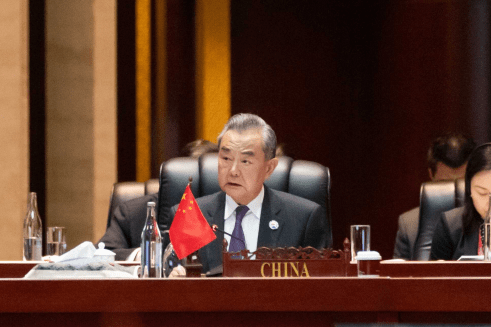
– On July 30, U.S. Secretary of State Anthony Blinken and Defense Secretary Lloyd Austin announced $500 million in military funding for the Philippines to modernize its military and boost their alliance amidst China’s “escalatory actions in the South China Sea.”
– During a session of the International Seabed Authority, the Chinese delegation challenged the United States’ claim of an additional 1 million square kilometers to its continental shelf, saying that the claim was contrary to international law.
– On July 27, Secretary Blinken met with Chinese Foreign Minister Wang Yi at the sidelines of the 14th East Asia Summit Foreign Ministers’ Meeting in Vientiane, Laos to discuss Ukraine, Taiwan, and other sensitive foreign policy issues.
– At their meeting in Laos, Secretary Blinken told Minister Wang that defending Ukraine was the United States’ “core interest” and reassured that Taiwan “was not and will not be a country.” Minister Wang, on the other hand, said that though communication is still open, the U.S. “has not stopped its containment and suppression of China, and has even intensified it.”
– On July 26, during the same conference, Minister Wang Yi warned the Philippine Foreign Secretary that “if the Philippines introduces the U.S. intermediate-range missile system, it will create tension…in the region and trigger an arms race.”
– On July 21, the Philippine Foreign Ministry said that the Philippines and China have “reached an understanding on the provisional arrangement” on the resupply mission to the Filipino ship on the Second Thomas Shoal, specifically noting that the resupply missions will remain as a “purely Philippine operation” and that “there is no need at this time for any direct involvement of U.S. forces.”
– To counter China’s growing influence in the Pacific region, the U.S. opened a new embassy in Vanuatu on July 18 to “provide more diplomatic presence throughout the region and to engage further with our Pacific neighbors.”
Associated News References:
“US boosts alliance with the Philippines with $500 million funding and pact amid concern over China,” AP, July 30
“China and Russia Challenge Legality of US Claims to Seabed Floor,” Bloomberg, July 29
“Blinken and a Top Chinese Official in Talks on U.S.-China Tensions,” The New York Times, July 27
“China’s foreign minister warns Philippines over US missile deployment,” Reuters, July 27
“Blinken and Wang discuss Taiwan, China’s support for Russia,” Reuters, July 27
“China, Philippines agree on ‘provisional arrangement’ for South China Sea resupply missions, Manila says,” Reuters, July 22
“US opens embassy in Vanuatu, latest step in China competition,” Reuters, July 19

– President Joe Biden’s decision to withdraw from the U.S. presidential race received widespread attention in Chinese social media, attracting 400 million views on Chinese X-like site, Weibo.
– Though China avoided official comments on President Joe Biden’s withdrawal from and Kamala Harris’ entry into the U.S. presidential race, Chinese state-backed media described Harris’ past performance as “mediocre” and said that Harris lacked the “achievements to serve as president.”
– In his campaign rally at Michigan, Republican presidential nominee Donald Trump said that President Xi Jinping wrote him “a beautiful note” after hearing about the assassination attempt against Trump that occurred in Pennsylvania on July 13.
– On July 18, Trump said in his address at the Republican National Convention that he would have Chinese automobile companies build manufacturing plants in the U.S. Otherwise, he would impose a 200% tariff on Chinese automobile imports.
– On July 17, in his speech at the Republican National Convention, Trump’s running mate J.D. Vance blamed China for U.S. worker wage losses, saying that he will “stop the Chinese Communist Party from building their middle class on the backs of American citizens.”
– In an interview with Bloomberg, Trump said that the U.S. is “no different than an insurance company” for Taiwan and that “Taiwan should pay” the U.S. for defense support.
Associated News References:
“Biden’s decision to bow out goes viral on Chinese social media,” Voice of America, July 22
“China Focuses on Kamala Harris’ Weaknesses After Biden Exits,” Bloomberg, July 22
“Donald Trump says Xi Jinping wrote him a ‘beautiful note’ after rally shooting” The Guardian, July 20
“Trump Welcomes China to Build Cars in US in Departure From Biden,” Bloomberg, July 19
“JD Vance blames U.S. wage losses on China’s efforts to build its middle class,” CNBC, July 18
“Trump Tells Taiwan to Expect a Higher Price Tag for U.S. Defense,” The New York Times, July 17
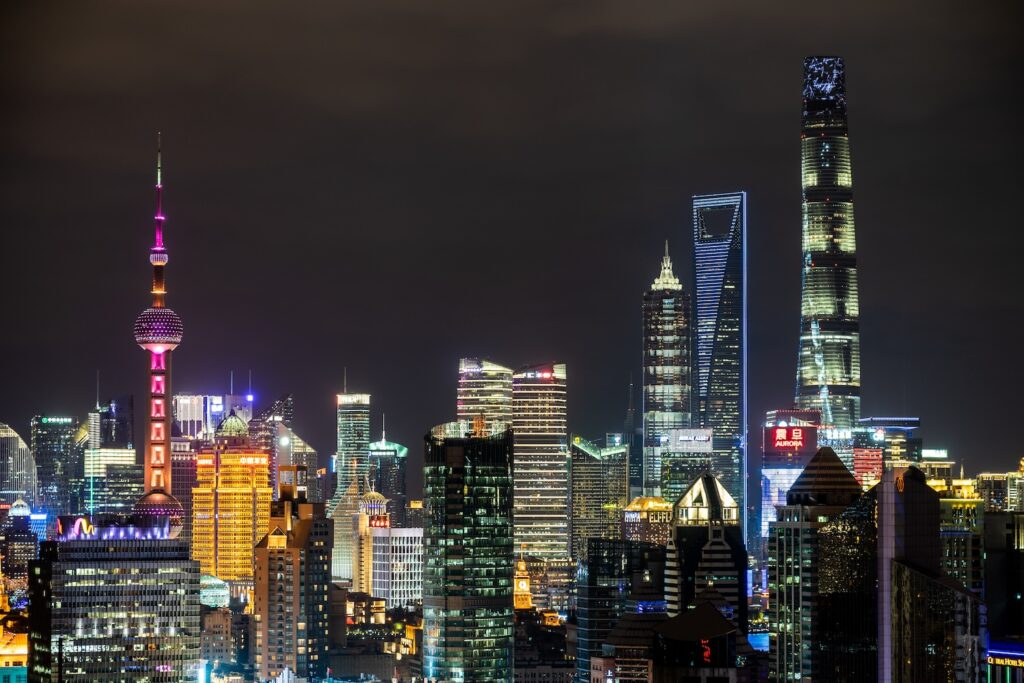
– Despite rising U.S.-China tensions, major global pharmaceutical companies such as Bristol Myers Squibb and Sanofi are actively searching for mergers & acquisition deals in China to replenish their drug supply chains.
– Chinese electric truck startup Windrose seeks to raise $200 million in its last round of investment funding before its U.S. initial public offering to fund overseas assembly plants in Europe and the United States.
– A Bank of America report released on July 22 found that four of the world’s largest semiconductor equipment manufacturers have more than doubled their revenue in China since Washington imposed semiconductor export controls in late 2022.
– NVIDIA is allegedly collaborating with Inspur to launch and distribute a new version of its advanced AI chips for the Chinese market, designed to comply with U.S. export controls restrictions.
– A Reuters analysis shows that Chinese-based companies are expected to have 20 gigawatts of annual solar production capacity in the United States in 2025, which would be sufficient to serve half of the American market’s demand for solar panel energy.
– Amidst U.S. restrictions, Huawei is expected to kickstart its $1.4 billion research center in Shanghai that would have nearly 30,000 personnels dedicated to semiconductor research and development.
Associated News References:
“Drug giants eye China for deals despite growing Sino-US tensions,” Reuters, July 23
“China electric truck startup Windrose to raise $200 mln before US IPO, source says,” Reuters, July 23“Major global chip equipment makers’ China revenue share has doubled since U.S. imposed export controls,” CNBC, July 23
“Exclusive: Nvidia preparing version of new flagship AI chip for Chinese market,” Reuters, July 22
“Many US solar factories are lagging. Except those China owns,” Reuters, July 17
“Huawei just built a $1.4 billion chip center as it faces U.S. sanctions,” Quartz, July 16
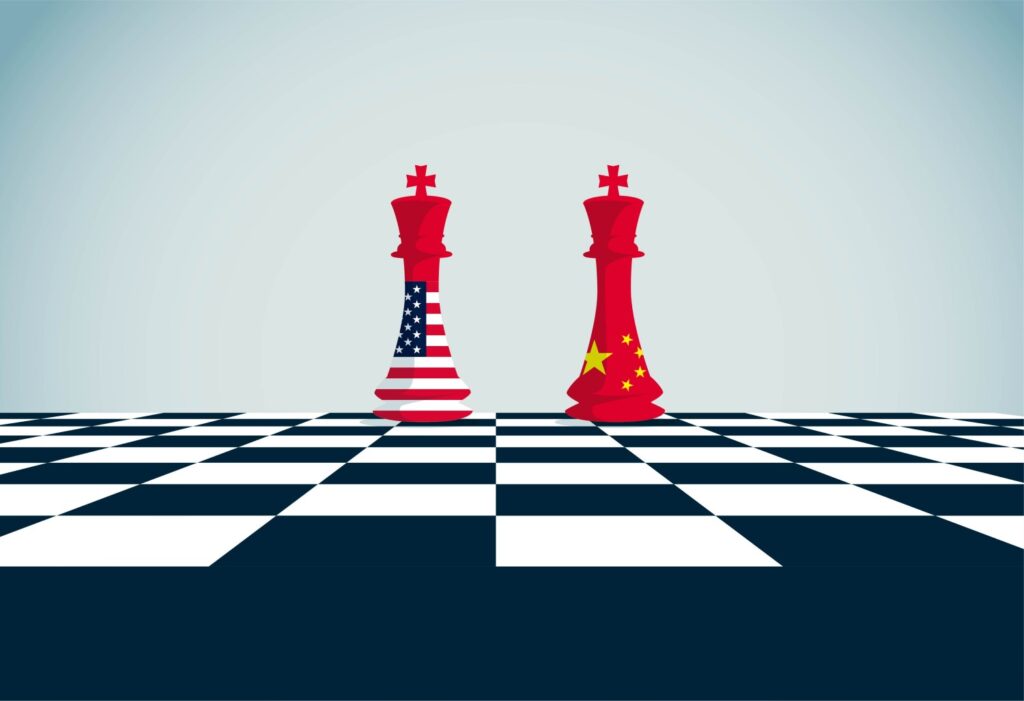
– On July 26, U.S. Department of Justice filed a court document to the federal appeals court in Washington. The document claimed that TikTok has collected sensitive user data related to abortion and LGBTQ and has sent it to Chinese servers via an internal system called Lark.
– In a meeting with top U.S. business executives from the U.S. China Business Council, Chinese Commerce Minister Wang Wentao warned that U.S. restrictions on Chinese investment will “seriously affect the investments and operations of American companies in China.”
– On July 19, China’s Ministry of Commerce announced that it will implement 43.5% anti-dumping duties on U.S. propionic acid products for the next five years.
– U.S. Department of Treasury released data on July 18 that shows that Chinese funds have sold $79.7 billion worth of U.S. long-term securities from January-May 2024. This marks an all-time high in Chinese sales of U.S. long-term securities in this five-month period.
Associated News References:
“Justice Department says TikTok collected US user views on issues like abortion and gun control,” AP, July 27
“Chinese officials warn of risks from higher US tariffs, urge US business leaders to help mend ties,” AP, July 24
“China to start anti-dumping duties on propionic acid products from US,” Reuters, July 18
“Chinese Investors Dump Record Amount of US Stocks and Bonds,” Bloomberg, July 18

“Standard Chartered plays down fears of US-China trade war under Trump,” The Guardian, July 30
“UAE blocks meetings between AI firm G42 and US congressional staffers, spokesperson says,” Reuters, July 30
“China Seizes Chance to Play Peacemaker in Ukraine Before US Vote,” Bloomberg, July 29
“Anger Lingers Over Positive Doping Tests for Chinese Swimmers,” The New York Times, July 26
“US military, seeking strategic advantages, builds up Australia’s northern bases amid China tensions,” Reuters, July 26
“Amid tensions with China, some US states are purging Chinese companies from their investments,” ABC, July 25
“US Must Crack Down on Illegal Vapes From China, BAT CEO Says,” Bloomberg, July 25
“Fishing treaty fails at WTO, prompting US, Chinese concern,” Reuters, July 23
“China Drops Sanctions on US Communications Firm in Rare Reversal,” Bloomberg, July 22
“Trump sanctions prompted China Xiaomi’s EV entry, CEO says,” Reuters, July 19
July 30 hosted by Asia Society
July 26 hosted by Center for Strategic & International Studies
July 18 hosted by Center for Strategic & International Studies
August 1 hosted by Hudson Institute
August 7 hosted by Foreign Policy Research Institute
August 8 hosted by Center for a New American Security
ICAS Researchers Hold Academic Visit in Greater Boston
July 8, 2024
On July 8, 2024, ICAS Executive Director Dr. Nong Hong held an academic visit in the Greater Boston area, joined by Yilun Zhang, ICAS Trade n’ Technology Program Manager, Research Associate, and Amanda Jin, ICAS Research Assistant. Mr. Jinsong Xi, Vice President of National Institute for South China Sea Studies (NISCSS), and Dr. Zhenwei Cai from NISCSS also participated in the group visit and academic exchanges.
At Harvard Kennedy School, ICAS and NISCSS scholars had a round table discussion with Professor Henry Lee, Program Director of Belfer Center Environment and Natural Resources Program and other fellows of the Belfer Center. The discussion addressed topics including U.S.-China academic exchanges, decarbonization policy and blue carbon efforts in China, as well as multilateral governance and sustainable development in the Arctic region.
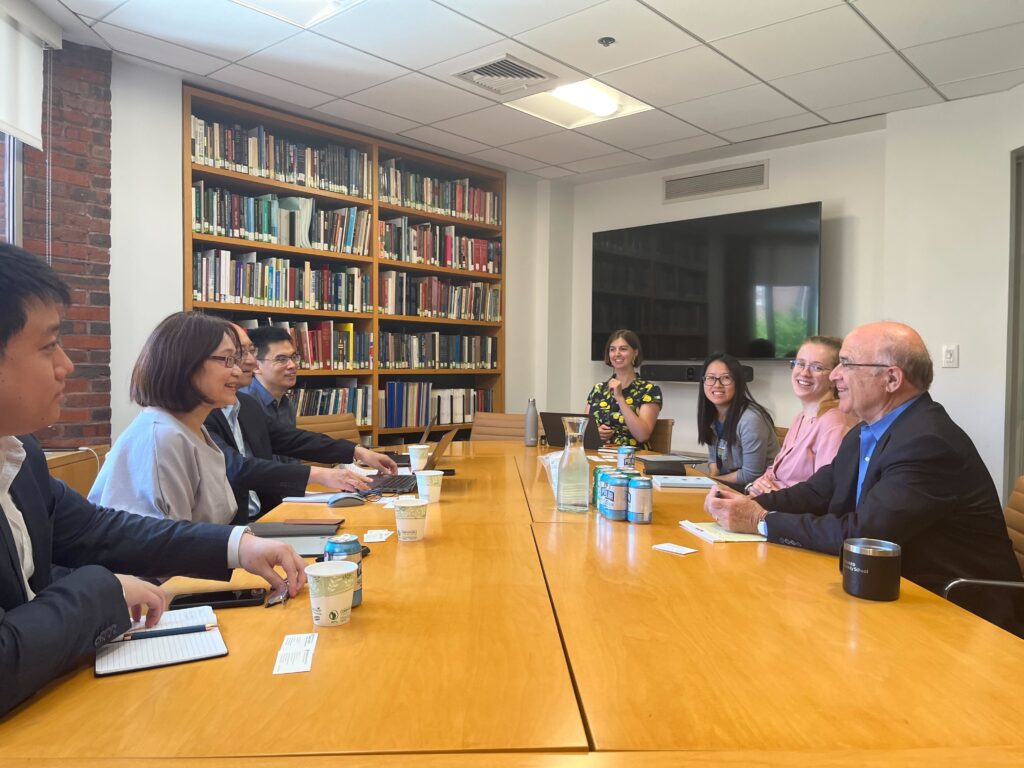
The U.S. DOD’s 2024 Arctic Strategy is a welcome respite from fatalistic views on China
By Jessica Martin
July 25, 2024
On July 22, 2024, the U.S. Department of Defense (DOD) released the 2024 Arctic Strategy, marking the first update in five years on the DOD’s official approach to the Arctic region. Unlike most DOD policy and strategy releases of late, the 2024 Arctic Strategy takes a refreshing perspective on its priorities, thus providing a welcome respite from the now-expected fatalistic views on the People’s Republic of China (PRC) in U.S. defense policy communications.
Since its last Arctic strategy was released in June 2019, the Arctic has undergone unprecedented shifts in its geostrategic environment…
Explainer: China’s Third Plenum Communique and Outcomes
By Sourabh Gupta
July 19, 2024
From Monday, July 15 to Thursday, July 18, the 20th Central Committee of the Communist Party of China convened its third plenary session. ‘Third Plenums’ are typically economic reform-focused meetings, and on occasion have gone on to spell out important reform-related breakthroughs. Following the conclusion of the third plenary session, which was attended by the Central Committee’s 199 members and 165 alternate members, a communique was issued – as is typically the case. So, what did the communique say? And what are the larger ramifications of this third plenary session for the near- and longer-term prospects for the Chinese economy?
Excluding China from the global AI development is a wrong game to play
By Ao Gu
July 17, 2024
Apparently, the U.S. and its allies have clear incentives to isolate China from the global artificial intelligence (AI) industry. Accusations of China’s dual use in AI have become an ubiquitous tone in the United States’ discussion of China’s current AI development. Nevertheless, China’s comparative advantage in AI operational application, coupled with its significant contributions to global AI development, presents an opportunity to enhance and synergize with the United States’ AI industry…
Denis Simon speaks at the Global Dialogue series on “Sino-US Youth People-to-People Exchange” at the Center for China and Globalization
July 5, 2024
On July 5, the Center for China and Globalization (CCG) co-hosted the latest Global Dialogue series on “Sino-US Youth People-to-People Exchange” with the Alliance of Global Talent Organizations (AGTO) and the Global Young Leaders Dialogue (GYLD) program.
Denis Simon, Distinguished Fellow at the Institute for China-America Studies, delivered a presentation, engaged in dialogue with Huiyao Wang, President of CCG, and answered live questions from the audience and Chinese media.
On Tuesday, July 23, 2024, Senior Fellow Sourabh Gupta was interviewed by CGTN America’s The Heat to discuss the 8th China-South Asia Expo that opened in the city of Kunming.
On Monday, July 22, 2024, Senior Fellow Sourabh Gupta was interviewed by CGTN’s The Point with Liu Xin on China’s Third Plenum’s focus on high-level opening up and liberalization.
On Sunday, July 21, 2024, Senior Fellow Sourabh Gupta was quoted by China Daily on China’s Third Plenum’s high-quality development focus.
On Sunday, July 21, 2024, Research Associate Yilun Zhang was interviewed by GD Today on China’s economic resilience.
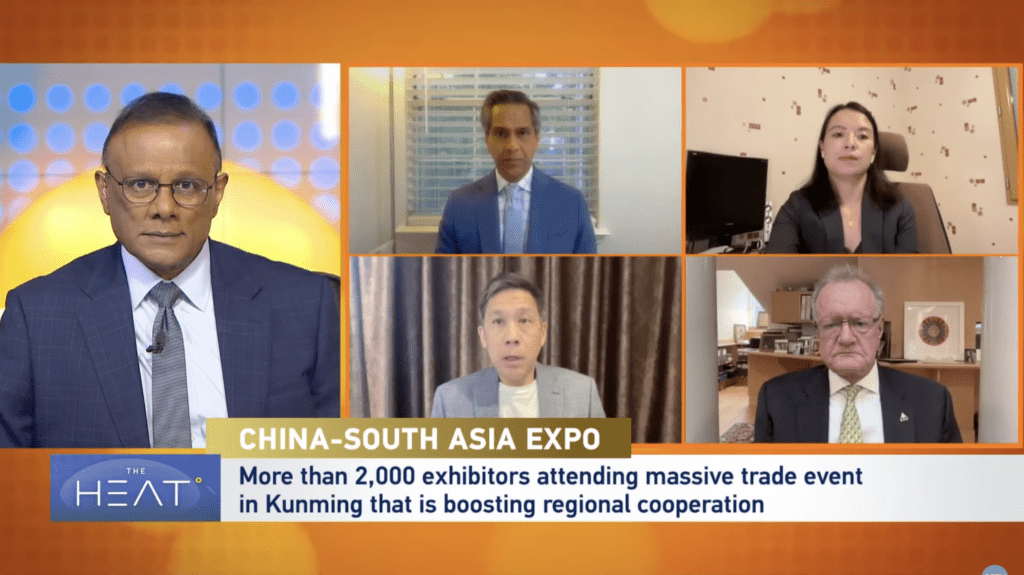
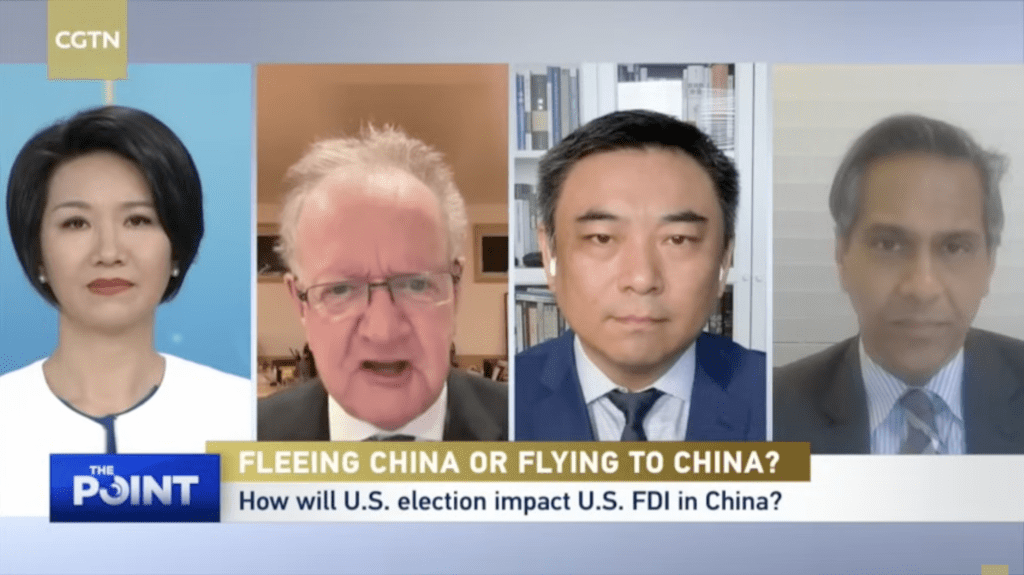

The Institute for China-America Studies is an independent nonprofit, nonpartisan research organization dedicated to strengthening the understanding of U.S.-China relations through expert analysis and practical policy solutions.
1919 M St. NW Suite 310,
Washington, DC 20036
icas@chinaus-icas.org
(202) 968-0595
© 2025 INSTITUTE FOR CHINA-AMERICA STUDIES. ALL RIGHTS RESERVED.